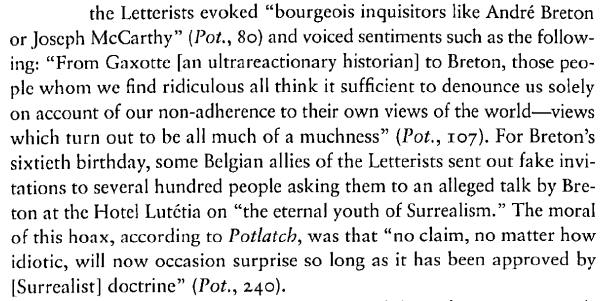dilbert1
Well-known member
Outside, the hipsters drank and smoked, unsure of what they were doing, but suddenly, by my side, was Fulvia Carnevale, and both of us stared at this madness and laughed maniacally, for the charred map of the U$A was right in our faces, in all its ugliness, embodied in these hipsters as much as her toasted match-sticks.
Like myself, this friend of mine also couldn’t recognize the organizers of this release party, and we whispered to each other during the rather dull reading of To Our Friends. We asked ourselves, where the fuck did these people come from? Why do they look like restaurant owners? Look at how fancy their clothes are. Did they hire some Brooks Brothers models for the reading? Both of us had already read To Our Friends by this point, and one or both of us was even pictured in the book, but still we sat in the rafters talking shit, because something seemed weird about this reading.
It got even weirder when the read-aloud story-time ended without a question and answer, and both of us watched the organizers immediately clique up as if they were the Invisible Committee themselves, ready to soak up all the attention and absorb it into their social-capital coin-purse. My friend and I just sat there watching, wishing we had opera glasses, but in the end it was just scary, because while we might not have known anything about these organizers, both of us were certain they weren’t down in the grime like us, the only place where things actually happen.
I’m confused as to how he thinks he’s better than all these people and how he doesn’t realize he’s acting pretty much with the same reverence and sense that he’s (actually and not only deludedly like the hipsters) part of a scene. Don’t recognize anyone at the book talk? Well why would you if you weren’t in one of those dreaded ‘milieus’? And this coming from a straight up riot tourist who flew to France to experience the Tarnac magic. Really wants to have his critical-metaphysical cake and eat it too




